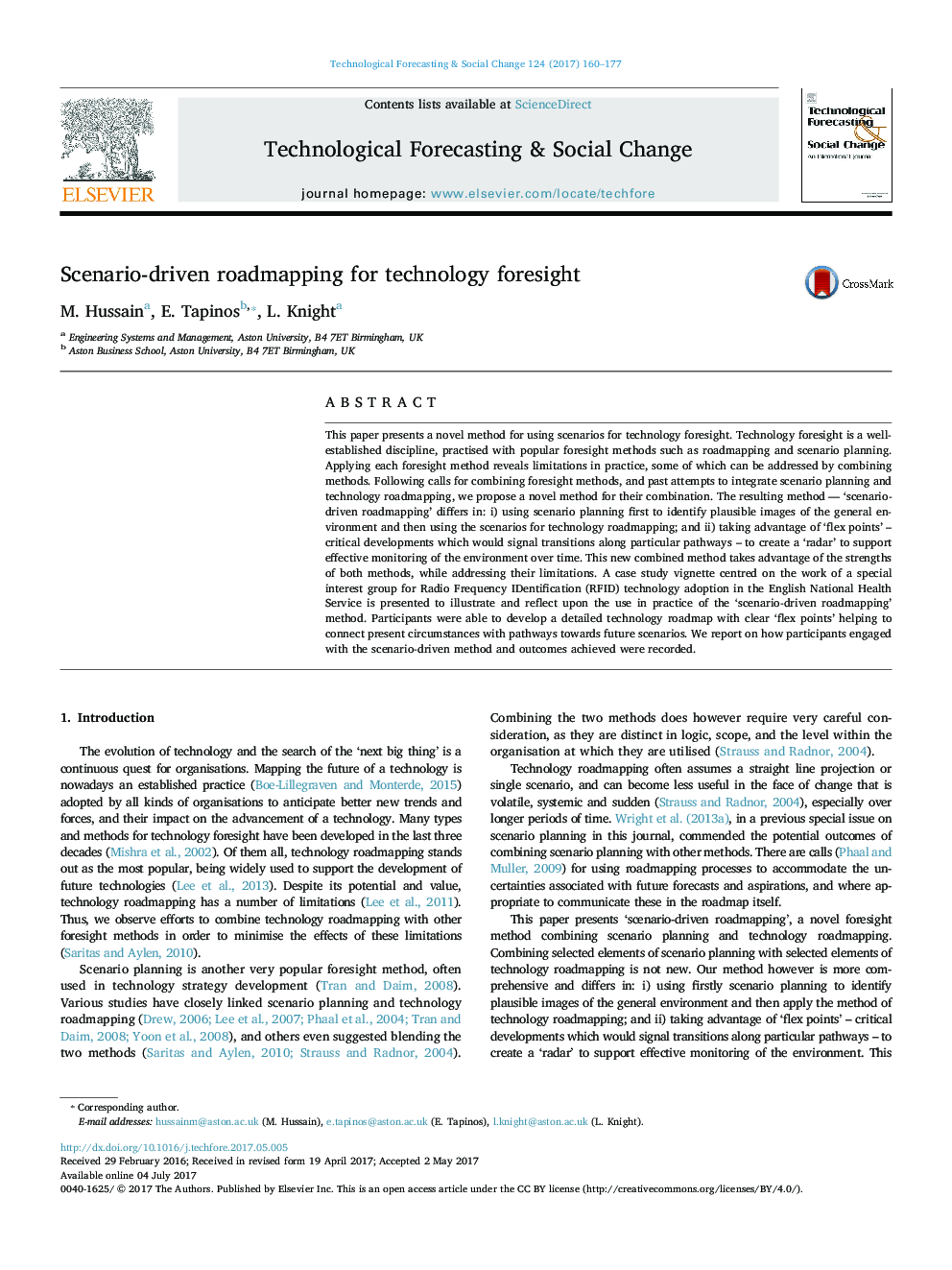| Article ID | Journal | Published Year | Pages | File Type |
|---|---|---|---|---|
| 5036745 | Technological Forecasting and Social Change | 2017 | 18 Pages |
â¢Reports on a study to develop a new technology foresight methodâ¢'Scenario-driven roadmapping' combines scenario development and technology roadmapping.â¢Provides reflections on applying the conceptual method in practiceâ¢Applied to the case of the future of RFID adoption in the English health serviceâ¢Highlights the value of flex points
This paper presents a novel method for using scenarios for technology foresight. Technology foresight is a well-established discipline, practised with popular foresight methods such as roadmapping and scenario planning. Applying each foresight method reveals limitations in practice, some of which can be addressed by combining methods. Following calls for combining foresight methods, and past attempts to integrate scenario planning and technology roadmapping, we propose a novel method for their combination. The resulting method - 'scenario-driven roadmapping' differs in: i) using scenario planning first to identify plausible images of the general environment and then using the scenarios for technology roadmapping; and ii) taking advantage of 'flex points' - critical developments which would signal transitions along particular pathways - to create a 'radar' to support effective monitoring of the environment over time. This new combined method takes advantage of the strengths of both methods, while addressing their limitations. A case study vignette centred on the work of a special interest group for Radio Frequency IDentification (RFID) technology adoption in the English National Health Service is presented to illustrate and reflect upon the use in practice of the 'scenario-driven roadmapping' method. Participants were able to develop a detailed technology roadmap with clear 'flex points' helping to connect present circumstances with pathways towards future scenarios. We report on how participants engaged with the scenario-driven method and outcomes achieved were recorded.
